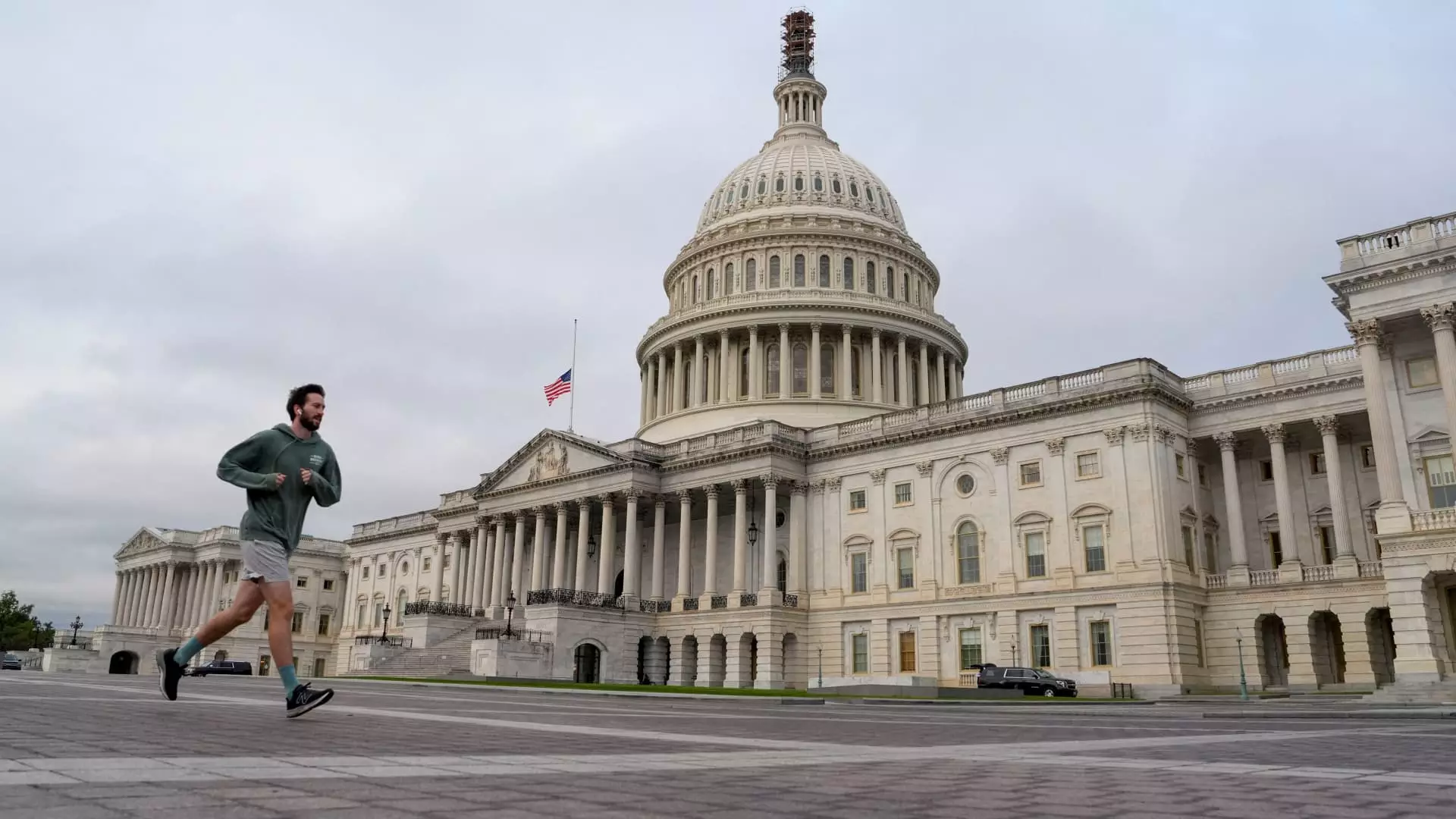Congressional leaders have recently reached an agreement on top-line spending, amounting to a staggering $1.59 trillion. This deal, which sets the overall spending budget for the 2024 fiscal year, aims to prevent a potential government shutdown. Republican House Speaker Mike Johnson of Louisiana announced that the budget includes $886 billion for military spending and $704 billion for non-defense spending. This breakthrough comes after weeks of intense discussions and debates, ultimately leading to hard-fought concessions that would enable the Appropriations Committee to negotiate and finalize the twelve annual appropriations bills.
As the House and Senate draw closer to the critical January 19 deadline, which marks the expiration of funding for numerous federal agencies, this spending deal is a beacon of hope. While it paves the way for a potential funding decision and indicates that both Johnson and Senate Majority Leader Chuck Schumer are working in harmony, the possibility of a government shutdown still lingers. The parties involved continue to clash over key policy issues, which may hinder the ultimate resolution.
In a joint letter, Schumer and House Minority Leader Hakeem Jeffries emphasized the positive impact of this deal on American families. They stated that this framework agreement would enable the appropriators to address significant challenges both domestically and abroad. Moreover, it would secure funding for hardworking American families and safeguard the legislative achievements of President Biden and Congressional Democrats. While Johnson acknowledged that these spending levels would not satisfy all parties or achieve the desired magnitude of cuts, he emphasized that this deal would propel the process forward, reprioritize funding, and uphold important policy riders embedded within the House FY24 bills.
To reach this agreement, a series of concessions were made. Among these include a $10 billion cut to IRS mandatory funding under the Inflation Reduction Act and a reduction of $6.1 billion from the “COVID-era slush funds.” These sacrifices were deemed necessary to maintain a balance and address the concerns of various stakeholders.
This momentous deal signifies the first significant test of Johnson’s leadership as House Speaker. The previous year posed particular difficulties for the GOP-controlled House, as they only managed to pass 27 bills that became laws. This historically unproductive rate, midway through the 118th Congress, emphasizes the challenges faced by Johnson. Moreover, the shrinking majority of House Republicans adds to the complexities of passing government spending bills along party lines. With the absence of House Majority Leader Steve Scalise from Washington, the GOP margin has reduced to a single vote. This necessitates the support of Democratic votes for any spending deal to come to fruition. However, it is evident that hardliners in the Republican caucus will oppose any agreement that does not involve drastic cuts. Johnson’s position is further compounded by the absence of GOP Rep. George Santos of New York, who was removed from office last year, and the departure of former House Speaker Kevin McCarthy of California.
In a statement released on Sunday, President Joe Biden expressed approval of the deal and the progress made towards averting a government shutdown. He acknowledged the funding levels negotiated the previous year and urged congressional Republicans to fulfill their basic responsibility to fund critical domestic and national security priorities. The President emphasized the need for them to cease their threats to shut down the government and support his supplemental request.
The $1.59 trillion spending deal represents a significant step towards avoiding a government shutdown. With the top-line spending budget established for the 2024 fiscal year, negotiations can commence in earnest. However, the ongoing clashes over key policy issues and the need for Democratic support underscore the challenges that lie ahead. It remains to be seen whether this deal will satisfy all parties involved, but it undeniably serves as a catalyst for progress in addressing the nation’s financial obligations and providing for the needs of the American people.

Leave a Reply